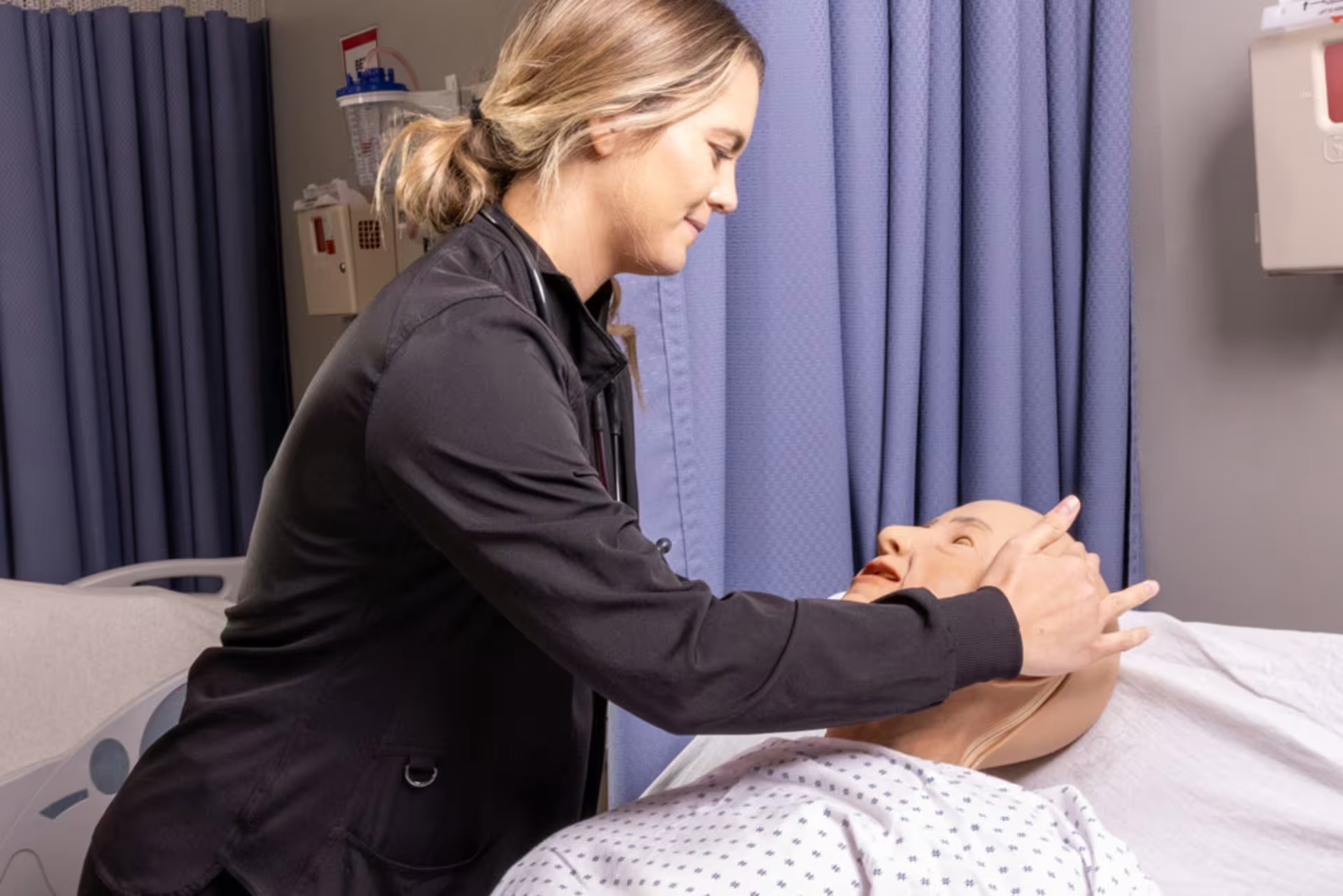
Post-Master’s FNP Certificate
Take Your Healthcare Skills to the Next Level
Prepare for advanced practice as a primary care provider by pursuing the online and evening post-master’s FNP certificate at Grand Canyon University.(See disclaimer 1) Gain confidence in making critical decisions in health promotion, diagnostics and disease management when working with diverse patient populations, from children to seniors.
This certificate can be well-suited for aspiring advanced practice registered nurses (APRNs) who are interested in sharpening their clinical skills and broadening their nursing knowledge in preparation for pursuing board certification as an APRN.(See disclaimer 2) The family nursing certificate program is offered by the College of Nursing and Health Care Professions, with in-person evening class options available.

Up to 12 credits or 1/3 of the total program requirements in transfer (whichever is less)
Credits: Fill out the Lopes Eval to find out what will transfer
Admission requirements may differ based on degree level, program and modality or transfer status. Some programs of study may require a higher GPA and/or other qualifying criteria for admission.
Please review full admission and program requirements in the University Policy Handbook.
Program available in Arizona, New Mexico, Florida, Nevada and Colorado
Complete an FNP Program at GCU
Combining the convenience of online learning with select on-campus experiences,(See disclaimer 1) GCU’s post-master’s certificate echoes realistic patient care scenarios and encourages stimulating peer discussions within a collaborative setting. GCU’s mission-oriented healthcare college offers a curriculum built from the Christian worldview. As you work through faith-integrated courses, you will be encouraged to reflect upon how best to serve your community as a principled and ethical servant leader.
GCU has designed higher education with the needs of modern learners and working professionals in mind. You’ll use GCU’s intuitive e-learning platform to access course materials and connect with peers.
This certificate program is available with online coursework to enable you to work through nursing classes on a schedule that is convenient for you.(See disclaimer 1)
Examine Advanced Nurse Practitioner Concepts and Principles
Examine core competencies and apply evidence-based research to optimize patient, family and community health. The management of common, acute and chronic conditions is examined through the lens of culturally and spiritually diverse environments. You will work through a well-rounded program of classroom instruction and hands-on, in-person learning experiences.
You will be empowered to embrace the principles of servant leadership, ethical decision-making and sound diagnostic reasoning.
This FNP certificate program covers several core competencies for nurse practitioners, including the following:
Program Requirements
In addition to classroom instruction, the FNP certificate program requires in-person experiential learning activities, including a 675-hour supervised clinical/practicum. You will complete the supervised clinical/practicum within a family health-focused clinical site or community-based primary care setting.
The certificate program also includes two separate on-campus experiences. During these experiences, you will be educated on the scope of practice, prescriptive authority and how to prepare for the National Certification Board exam.

Career Paths for FNP Certificate Holders
This certificate program aims to prepare you to take the Family Nurse Practitioner board certification exam through The American Academy of Nurse Practitioners Certification Board (AANPCB) or the American Nurses Credentialing Center (ANCC).(See disclaimer 3) Additional requirements may apply to graduates planning to practice in certain states.
This program is designed to prepare you to work with diverse patient populations. Graduates may choose to pursue opportunities in nursing specialties such as:(See disclaimer 4)
Chronic disease management
Acute care
Family care
Pediatrics
Geriatrics
Postsecondary nursing instruction
Earn Your Certificate From an Institutionally Accredited Nursing College
The online and evening post-master’s FNP certificate program at GCU is designed to align with the standards established by the following entities:
GCU is proud to be an institutionally accredited university that maintains a focus on academic excellence. The Higher Learning Commission has continually accredited GCU since 1968. The College of Nursing and Health Care Professions shares the university’s commitment to upholding the principles and standards established by our accrediting bodies.
The baccalaureate degree programs in nursing, the master’s degree programs in nursing, the Doctor of Nursing Practice programs and the post-graduate APRN certificate programs at Grand Canyon University are accredited by the Commission on Collegiate Nursing Education (https://www.ccneaccreditation.org). For more information on the accreditation of nursing programs and other university approvals, please visit our nursing accreditation page.
Post-Master’s FNP Certificate FAQs
The following frequently asked questions and answers may prove helpful to you as you reflect upon your career options and academic intentions.
How long does an FNP program take?
Is FNP higher than NP?
What can I do with a post-master’s FNP certificate?
What’s the difference between an FNP and a DNP?
How do I go from an MSN to an NP?
What certifications can an FNP get?
Why is CNP certification important?
What are the prerequisite requirements before applying to the FNP certificate program?
Program Curriculum
Core Courses

Take a convenient combination of online or evening classes and hands-on experiential learning.(See disclaimer 1)
- While all courses are completed online, you will need to attend clinical, practicum and immersion hours in person locally.
- U.S. Bureau of Labor Statistics. (2023, Sept. 6). How To Become a Nurse Anesthetist, Nurse Midwife, or Nurse Practitioner. Occupational Outlook Handbook. Retrieved March 20, 2024.
- Deering, M., J.D. (2023, Sept. 21). How To Become a Nurse Practitioner. NurseJournal. Retrieved March 20, 2024.
- NurseJournal. (2024, Feb. 26). How To Become a Nurse Educator. Retrieved March 20, 2024.


